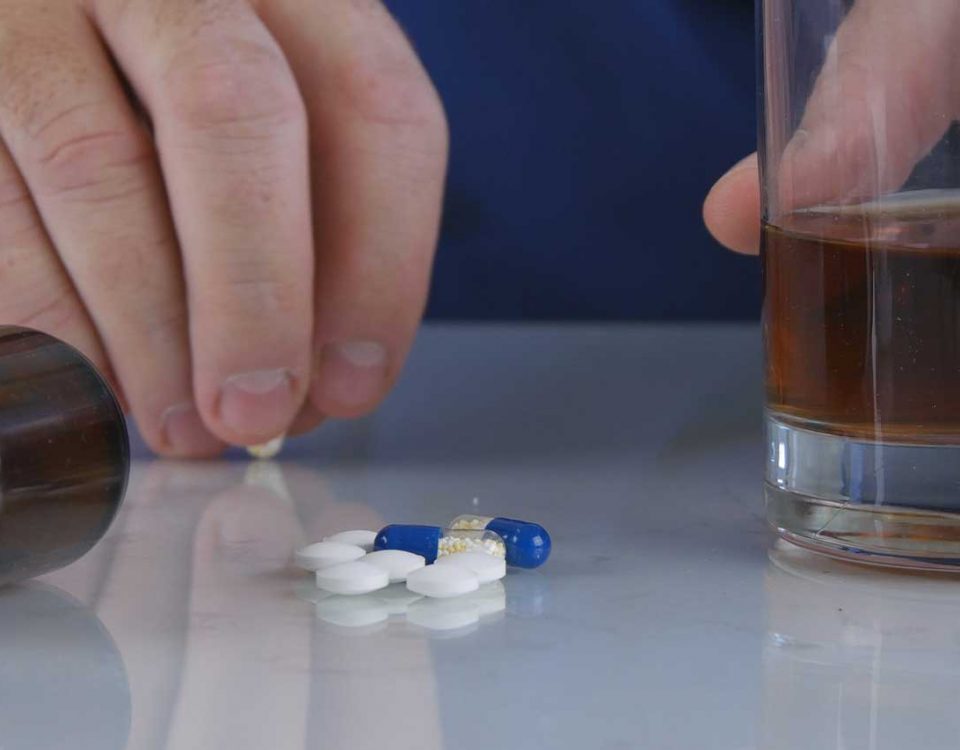Certain illicit and prescription drugs can cause a variety of health problems.
As the United States continues to struggle with the opioid epidemic, many individuals are battling prescription drug abuse and addictions to drugs like morphine and heroin. While illicit drugs are known for their adverse side effects, many people believe that taking prescription drugs is significantly safer; however, any form of substance abuse is harmful; prescription medications often come with a warning for a possible decrease in bone health. Our Stuart, Florida addiction treatment center is well aware of how drugs affect your bones and is sharing more information about these side effects and how to avoid them.
Drugs That Affect the Bones
The effects of drugs on the bones can vary depending on the person’s existing health before engaging in drug abuse and the drug in question.
Some common medications that affect bones include:
- Prednisone or pills that are high in cortisone
- Thyroid medications like Levoxyl or Synthroid
- Medications used to treat diabetes like Forxiga or Actos
- Certain medications used to treat stomach problems like antacids
- Antidepressants such as Prozac or Zoloft
- Blood thinners like Warfarin or Heparin
- Diuretics like Demadex and Edecrin
- Anticonvulsant medications like Dilantin and Depakote
When taken as directed by a doctor, these medications can cause a decrease in bone health. When these medications are misused or abused, the individual’s risk of developing conditions like drug-induced osteoporosis increases significantly.
There are also illicit drugs that can harm bone health, including:
- Heroin
- Methamphetamine
- Cocaine
- Crack cocaine
Whether they’re prescribed or not, most if not all of the drugs listed above can be addictive. The effects of drug abuse on bones are more likely to occur in an individual who struggles with a drug problem. Because addiction is a chronic disease, it can be nearly impossible for someone with a drug dependence to quit using on their own. At Banyan Detox Stuart, we offer a medically monitored detox that helps patients safely complete the withdrawal process and build defenses against addiction cravings.
Understanding How Drugs Affect Your Bones
So, now that you know which drugs affect bone health, you may be wondering, “how do drugs affect the bones?” Several bone diseases can be caused by drug abuse.
Osteoporosis
Osteoporosis is a degenerative disease caused by the thinning or destruction of cartilage that coats the ends of the bones. It occurs when the person’s body doesn’t create new bone fast enough to keep up with bone removal. As a result, the bones may become weak and fragile, which can lead to frequent fractures or breaks. Osteoporosis can be caused by malnutrition, which is a common side effect of long-term drug abuse. Individuals with drug addictions are more likely to experience drug-induced osteoporosis. People with substance abuse disorders often go for long periods without eating or drinking anything, which can be damaging to their health. Cocaine, methamphetamine, and opioid addiction have been linked to reduced bone density (osteopenia), which often precedes osteoporosis.
Osteomyelitis
Osteomyelitis is an infection in the bones. People who engage in intravenous drug abuse are more likely to develop this condition. If left untreated, osteomyelitis can destroy the bones from the inside out. The use of dirty needles (often involved in heroin and meth abuse) is also associated with this type of bone disease.
Despite the effects of heroin, people who are addicted to it may struggle to quit using it on their own. At Banyan Treatment Centers Stuart, we offer a safe and efficient heroin addiction treatment that can make sobriety a possibility for someone struggling with heroin abuse.
Dental Deterioration
The effects of drug abuse on bones also include temporomandibular joint disorder (TMJ) and tooth decay. TMJ is a joint that acts as a hinge, connecting your jawbone to your skull. When this area of
the jaw is affected, it can cause severe pain, difficulty chewing, and lockjaw. Individuals who use crack cocaine and methamphetamine often experience TMJ and tooth deterioration because they’re prone to grinding their teeth. Smoking crack and meth can also affect the salivary glands, increasing the possibility of tooth decay. Our Banyan detox center also offers a cocaine addiction treatment that addresses the emotional and physical side effects of cocaine abuse, regardless of the severity of the person’s addiction.
Arthritis
Arthritis is swelling or pain in one or more joints. Pain and stiffness are the most common symptoms of this condition. Arthritis and osteoarthritis can also be caused by malnutrition, which is common in many drug users. Without addiction treatment, the individual will become more prone to developing arthritis, as well as other infections and bone diseases.
Spinal Problems
The effects of drugs on bones also include spinal problems. Spinal problems in drug users are a result of chronic muscle tension and poor posture. Because certain drugs cause problems in the muscles as well, how a person sits and stands is also affected. Over time, the muscles that support the spine weaken, increasing the individual’s risk of spinal injury.
The current and aftereffects of substance abuse go beyond bone disease. Without professional help, a person with a drug problem may suffer from a variety of health conditions. If you or someone you know is caught in addiction, we can help. Call us now at 888-280-2360 for more information about our medically supervised drug and alcohol treatment in Stuart.
Sources:









